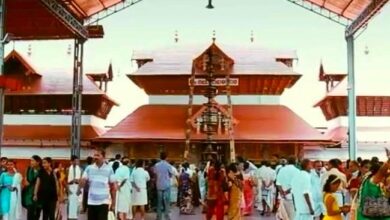Delay for monsoon affects hospitals : Hospitals buy water for treatment

Chennai : Treating patients will “depend on God’s mercy” if water supplies in India’s fourth-largest metropolis aren’t replenished shortly, said Ravisankar, the chairman of Sudar hospitals, a chain of four clinics with 150 beds. Piped water at his hospitals has already dried up, and even the more expensive water trucks he now relies on may be unavailable soon in the state of Tamil Nadu.
The cost escalation will have to be passed on to patients, who will have to spend more. If the situation continues, after a month we won’t be able to serve patients.
The situation is similar to drought in most parts of the country
Failed rains last year and delays in this year’s annual monsoon have left nearly half of India facing drought-like conditions, according to the South Asia Drought Monitor. Tamil Nadu is trapped in a “severe dry” cycle along with other states like Karnataka, Andhra Pradesh and Maharashtra.
As the impact of climate change worsens, water is shaping up to be a serious economic risk in Asia’s third-largest economy. Desertification, land degradation and drought cost India about 2.54% of gross domestic product in 2014-15, according to a study last year by India’s environment ministry.
The quality of water being bought even by homes in drought-struck areas has caused allergies, sending more patients to local hospitals in places like Chennai.
Almost all of Chennai’s hospitals are now completely dependent on the more than 5,000 privately-owned tankers that ferry water around the city every day, according to N. Nijalingam, president of the Tamil Nadu Private Water Tanker Lorry Owners’ Association. But it’s becoming tougher to source water even from 100 kilometers (62 miles) away, he said.
“If the situation continues, after a month we won’t be able to supply water even to the people who can pay a huge sum for a tanker of water,” he said.
The price of a 12,000-liter water truck soared from 1,200 rupees ($17.50) in April to as high as 6,000 rupees since shortages began, The News Minute website reported. Smaller nursing homes and clinics in Chennai, a medical tourism hub, have been hit harder than larger hospitals that have more money, according to Balaji Venu Gopal, a vascular surgeon at Apollo Hospitals in Chennai.
“Nobody has come out openly to raise the issue and seek government support so far,” said Venu Gopal. “But the crisis is definitely cutting the profit margin of the medical industry.”






